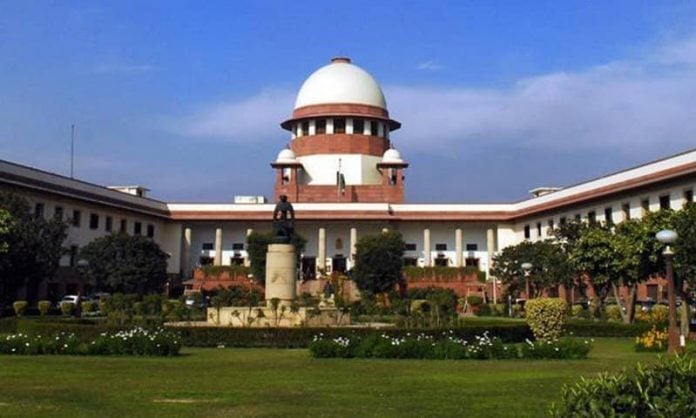The Supreme Court today issued notice on a petition challenging the constitutional validity of Section 124A of the Indian Penal Code, stating that such laws posed a serious threat to the functioning of administration, as well as individuals.
A three-Judges bench of Chief Justice of India N.V. Ramana, Justice A.S. Bopanna and Justice Hrishikesh Roy said, “Suppose some particular party don’t want the other party, they may use these types of laws. It is a serious threat to the functioning of administration, as well as individuals. Let us see we will examine all these matters and we’ll keep it at one place.”
The PIL was filed by retired Additional Director General, Army Headquarters, SG Vombatkere. It said, “A statute criminalising expression based on unconstitutionally vague definitions of ‘disaffection towards Government,’ ‘Hatred,’ ‘Contempt’ and ‘Feelings of Enmity’ is an unreasonable restriction on the fundamental right to free expression guaranteed under Article 19 (1) (a) and causes constitutionally impermissible ‘Chilling Effect’ on speech.
Yesterday, the bench had directed the petitioner to serve a copy of the petition to the office of the Attorney General of India.
Attorney General KK Venugopal today submitted, “Your Lordships may see not to strike down as whole, but look into the cases and the aspects being misused.”
However, the Chief Justice stated, “No doubt that it is a colonial law…is it necessary after so many years to keep it in our books of law. If you give Saw to the carpenter instead of cutting wood he is using it to cut the forest, that is the effect of it.”
Also Read: Advocate moves Allahabad High Court against its circular mandating black gowns, coat
Mr Venugopal informed the bench that there are similar matters pending before other benches and the same may be posted together.
The plea stated, “The Provision makes every speech or expression that ‘brings or attempts to bring into hatred or contempt, or excites or attempts to excite disaffection towards the Government established by law in India’ as criminal offence, punishable with a maximum sentence of life imprisonment. The Provision has also been classified as ‘cognisable’ and non-bailable’.”
The bench, however, said, “We’ll notify the date after some time. The petitioner sacrificed his whole life for the nation and we can’t say it is a motivated litigation.”


